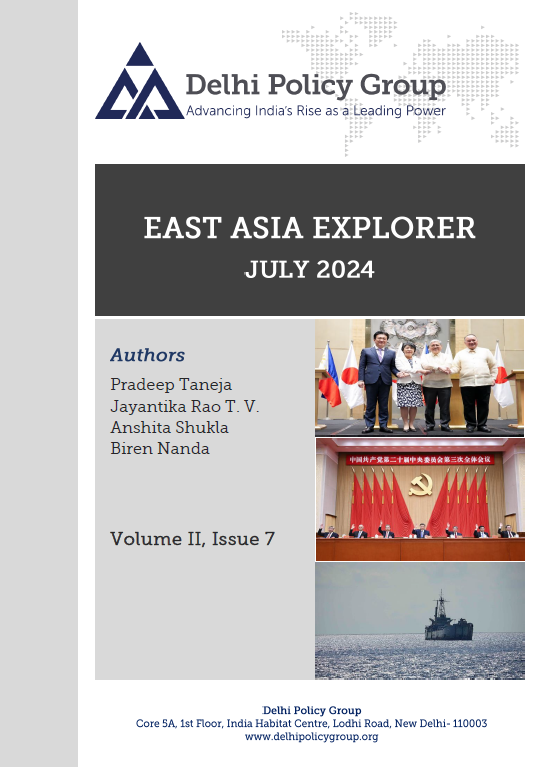East Asia Explorer
The East Asia Explorer tracks evolving geopolitical trends, emerging security challenges, and progress towards regional integration in East Asia. It focuses on the ASEAN grouping, domestic and foreign policy developments in countries of East Asia and Oceania, great power contestation in the region, and India’s relations with ASEAN and its member countries.
In this issue, Dr. Pradeep Taneja analyses the escalating tensions between the Philippines and China in the South China Sea. He reviews the flurry of diplomatic activity by the Philippines with Japan and the United States, aimed at fostering greater security cooperation to counter China’s aggressive behaviour. He answers critical questions regarding the efficacy of these diplomatic activities and posturing in deterring China from engaging in unsafe behaviour in the South China Sea.
Jayantika Rao’s paper delves into the ramifications of China’s Third Plenum, held from July 15-18, 2024, on the security of the South China Sea and the broader Southeast Asian region. She examines the implications of China’s commitment to modernising the People’s Liberation Army (PLA) on neighbouring Southeast Asian nations, especially those with overlapping claims with China in the South China Sea.
Anshita Shukla reviews the second Japan-Philippines Foreign and Defense Ministerial Meeting ("2 2") convened in Manila on July 8, 2024. A key outcome of the meeting, the signing of the Japan-Philippines Reciprocal Access Agreement (RAA), is highlighted by the author as she assesses recent developments and the growing convergence of interests between these two countries.
Finally, in his piece, Amb. Nanda analyses the impact of the demise of Vietnamese Party Chief Nguyen Phu Trong, one of Vietnam’s most powerful leaders, on Vietnam’s foreign policy. He also underscores the strides made by Vietnam in economy and foreign policy under Nguyen Phu Trong.
To read this East Asia Explorer, Vol. II, Issue 7, please see the PDF attached.



